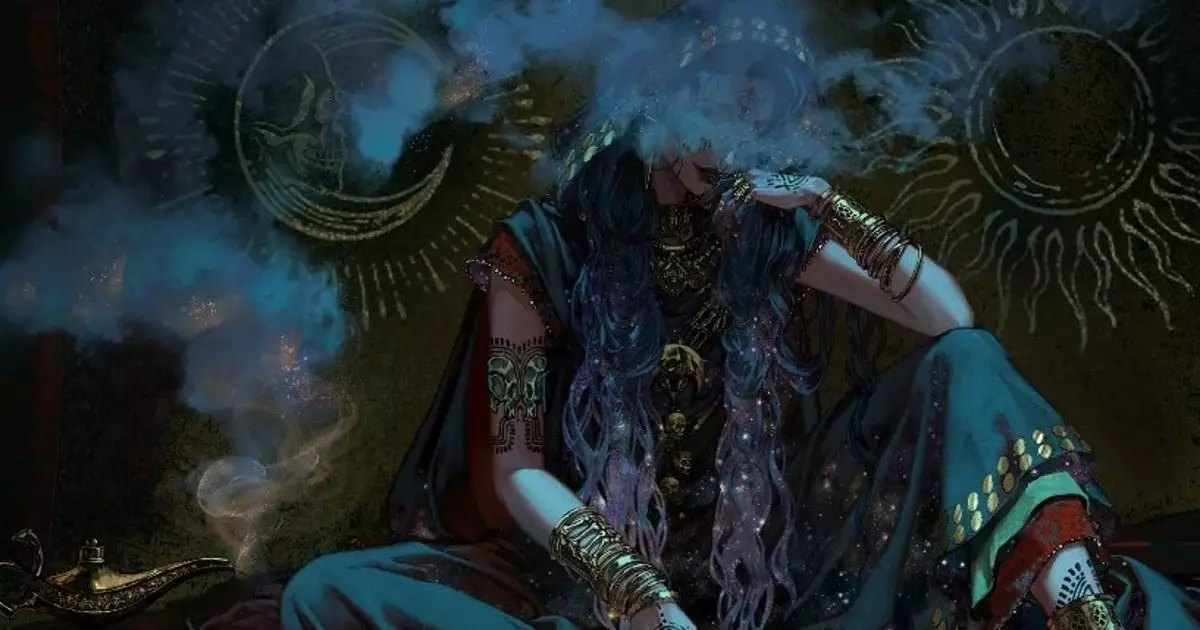Sultan’s Game emerges as a labyrinthine blend of strategy and storytelling, propelling players into a world where pleasure, power, and peril intertwine in a richly illustrated canvas reminiscent of both Eastern fables and modern video game aesthetics. At first glance, the game’s art captivates with its flamboyant and intricate designs, evoking parallels to popular titles like Hades while borrowing thematic elements from Yoshitaka Amano’s dreamlike interpretations of classic narratives. The sumptuous visuals set the stage for a journey steeped in intrigue, but it is the gameplay mechanics that truly define the experience and keep players entangled in its web.
In its introduction, players take on the role of the Sultan, a monarch jaded by earthly delights. The arrival of a magician armed with a deck of cards introduces a unique strategic element — each card channels actions of carnality, bloodshed, conquest, or extravagance, demanding choices that weigh both moral implications and survival requirements. The necessity for equivalent value in targets creates an unsettling tension, forcing players to navigate the ethical quagmire inherent in their choices. This juxtaposition of beauty and barbarity nuances the storytelling, posing questions about power dynamics and the human condition.
As players delve deeper, Sultan’s Game unveils a chillingly efficient approach to resource management akin to titles such as Frostpunk. Courtiers are not merely characters; they represent valuable commodities. The emotional resonance is palpable as players interact with these characters, who exist as both individuals with their own stories and as expendable assets in a high-stakes game of survival. The game thrives on this compelling dichotomy, drawing attention to the nature of sacrifice in a quest for power.
In what is perhaps a refreshing twist, once the tutorial concludes, players do not continue as the Sultan but instead generate their own unique characters. This pivot allows for broader exploration of the game’s world and injects personal agency into an otherwise oppressive royal environment. However, the looming threat of the Sultan’s execution ensures that every decision carries life-or-death significance, adding layers of tension and urgency to the gameplay.
Drawing an action card initiates a race against time, with only seven days allotted to achieve the card’s demands before facing the Sultan’s wrath. Players must cleverly maneuver the labyrinth of storylines and event chains at their disposal, tapping into their entourage’s unique skills and attributes. This worker placement mechanic becomes a delicate balancing act, demanding players strategize not only for immediate gain but also for long-term reputation and influence within the treacherous court. The multifaceted nature of these challenges adds an intriguing layer of complexity to what could otherwise be a straightforward narrative journey.
What truly sets Sultan’s Game apart is its commitment to dark humor interwoven with vibrant chaos. The narrative thrives in its unflinching portrayal of cruelty and absurdity, offering a bizarre comedic juxtaposition against the backdrop of clinical decision-making. The occasional disorientation that players experience mirrors the disarray within the plot, where acts of violence and indulgence are normalized and almost expected, creating an enthralling, if disturbing, atmosphere.
For instance, during an early “bloodshed” card, the protagonist is tasked with eliminating a gold-tier character from their court. Such actions underscore the game’s deeper message about the often-harrowing consequences of ambition. Yet, there is a playfulness embedded in these dire choices, provoking not just reflections on mortality and power, but also on the absurdity of navigating a decadent court where every interaction feels tinged with the possibility of betrayal or seduction.
At this juncture, Sultan’s Game reveals itself as a perplexing and engaging experience. With countless narrative threads and characters waiting to be explored, the game hints at a depth that could potentially surprise even the most seasoned players. While its imperfections and complexity might initially deter some, those who dare to venture forward are likely to find themselves enchanted by the dark, vibrant world it inhabits.
Sultan’s Game pushes boundaries, challenging players not only to engage in strategic maneuvering but also to confront the intricacies of moral ambiguity within a surreal and captivating framework. The potential to explore themes of tyranny, desire, and consequence ensures that this game promises to be a memorable experience. As the layers unfurl with every card drawn, the players may find themselves drawn deeper into a world rich with narrative potential, making Sultan’s Game a title worth exploring for those unafraid of decadence and darkness.

